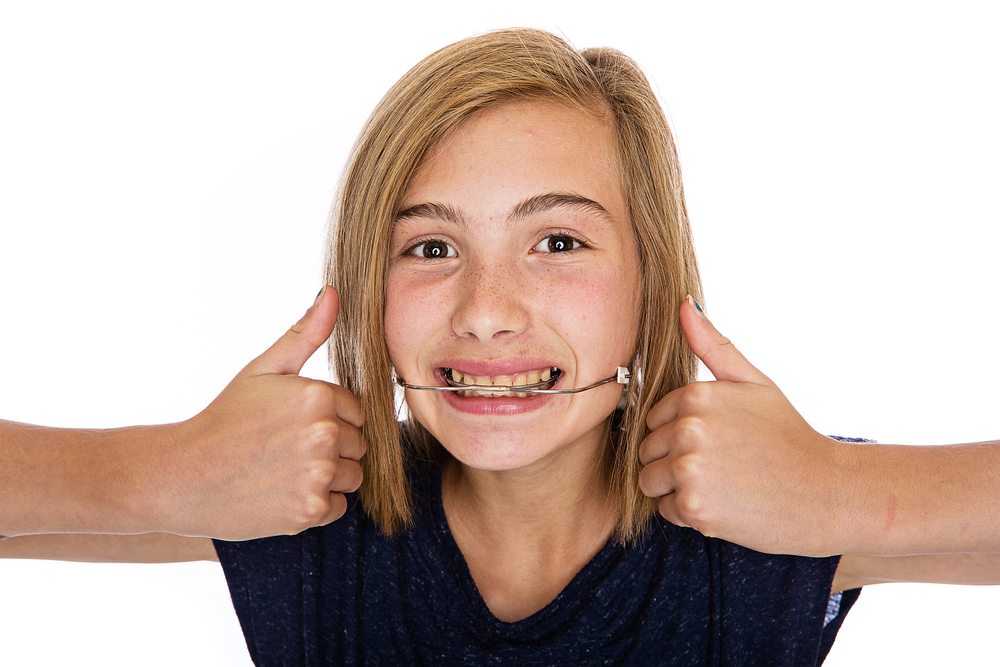Get Ahead on Your Journey to Improved Oral Health
Orthodontic treatment has come a long way in recent years, with various tools and techniques available to help correct dental issues. One such tool is orthodontic headgear, which can help treat problems with jaw misalignment.
At the Centre for Invisible Orthodontics, Dr. Stephen Grussmark, our affordable Miami orthodontist, welcomes patients from Key Biscayne, Brickell, and Miami Beach, FL, to discover our suite of personalized orthodontic solutions. Learn more by calling (305) 441-1200.
What Is Orthodontic Headgear?
Orthodontic headgear is used to correct a range of orthodontic issues. It consists of a metal or plastic framework that fits around the patient’s head, with wires or bands attached to the patient’s teeth. The headgear is usually worn for a certain number of hours each day and gently guides the teeth and jaw into the correct position over time.
attached to the patient’s teeth. The headgear is usually worn for a certain number of hours each day and is designed to gently guide the teeth and jaw into the correct position over time.

Types of Orthodontic Headgear
There are several different types of orthodontic headgear, each designed to treat orthodontic issues. Some common types include:
- Cervical Pull Headgear: This type of headgear attaches to the back of the patient’s head and uses a strap to pull the upper jaw into the correct position.
- High-Pull Headgear: This type of headgear attaches to the back of the head and uses elastics to pull the upper jaw into alignment.
- Reverse-Pull Headgear: This type of headgear attaches to the front of the patient’s face and pulls the upper jaw forward in patients with an underbite.
- Combination Headgear: This type of headgear combines elements of different types of headgear to treat multiple orthodontic issues.
How Do I Clean My Orthodontic Headgear?
Cleaning your own orthodontic appliances and headgear is crucial to maintaining good oral hygiene and preventing bacteria and plaque. Here are some steps to follow to clean your orthodontic headgear:
- Rinse your headgear with warm water to remove loose debris or food particles.
- Brush your headgear gently using a soft-bristled toothbrush and mild soap or toothpaste.
- Avoid using harsh chemicals or abrasive materials that can damage the headgear.
- Rinse your headgear thoroughly with water to remove any soap or toothpaste residue.
- Dry your headgear with a soft cloth or towel.
- Store your headgear in a clean, dry place when you’re not wearing it.
It’s necessary to clean your headgear regularly to prevent the buildup of bacteria and plaque, which can lead to tooth decay and gum disease. If you have any questions or concerns about cleaning your headgear, consult Dr. Grussmark for guidance.
Frequently Asked Questions
The time you need to wear orthodontic headgear depends on your treatment plan. Your orthodontist will give you specific instructions based on the severity of your condition and how well you comply with wearing the headgear. Most patients wear headgear for a few hours each day or while they sleep, for several months to a year or more.
Orthodontic headgear can be uncomfortable, but most patients get used to it within a few days or weeks. It may feel tight or put pressure on your teeth, jaw, or head, but this is normal as the headgear is working to move your teeth and jaw into the correct position. If you experience significant discomfort or pain, contact your orthodontist for guidance.
Your orthodontist will schedule regular appointments to monitor your progress and make any necessary adjustments to your treatment plan. The frequency of these appointments may vary depending on your needs, but most patients see their orthodontist every four to eight weeks while wearing headgear.
Orthodontic treatment, including the cost of orthodontic headgear, is often covered by dental insurance plans. However, the amount of coverage may vary depending on your plan and the severity of your condition. It’s best to check with your insurance provider to understand your coverage and any out-of-pocket costs you may be responsible for.
Get Fitted for Orthodontic Headgear and Correct Your Bite
If you’re considering orthodontic treatment, orthodontic headgear may be a critical part of your treatment plan. To learn more about how headgear can help you achieve a straighter, healthier smile, schedule a consultation with your orthodontist in South Florida today.
Dr. Grussmark can evaluate your needs and create a customized treatment plan that works for you. Don’t wait to start your journey to a better smile! Call our Miami, FL, office today at (305) 441-1200 or fill out our online contact form to schedule your appointment.

